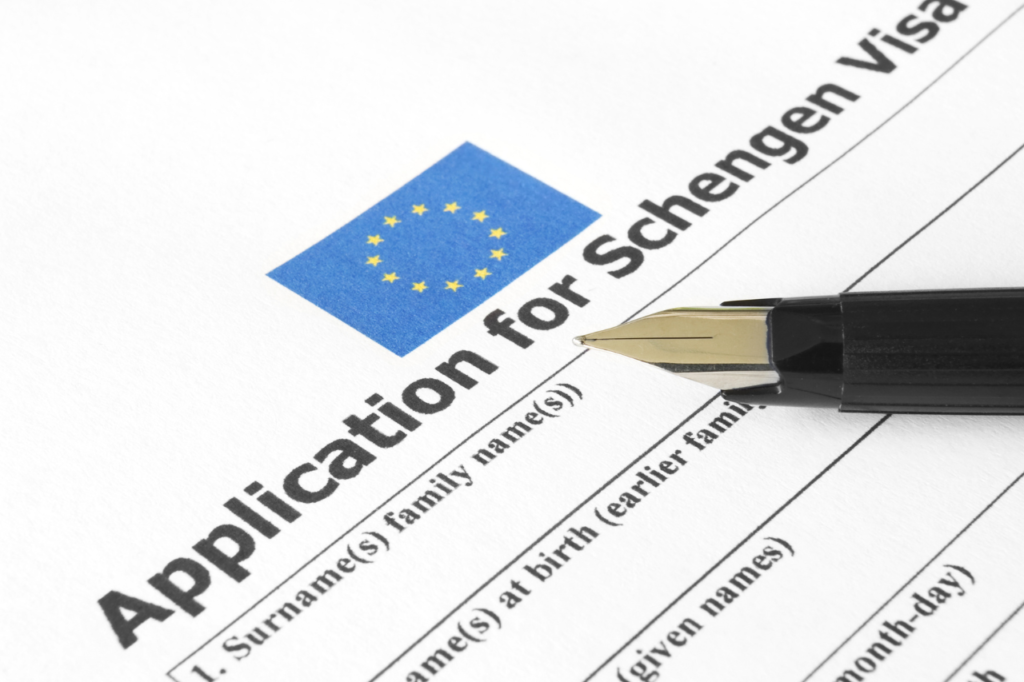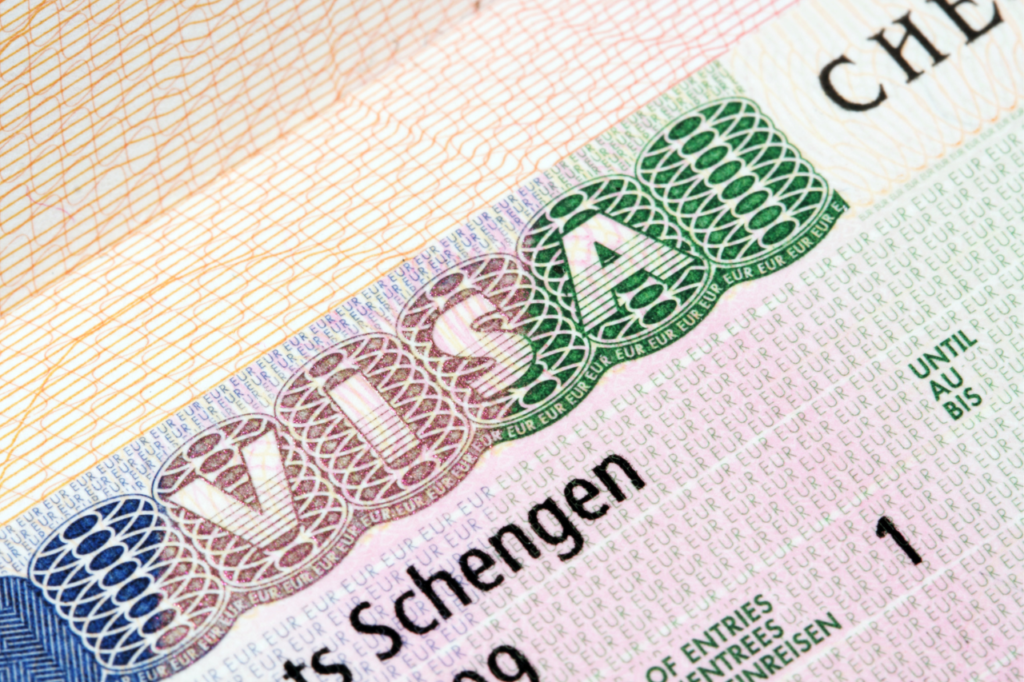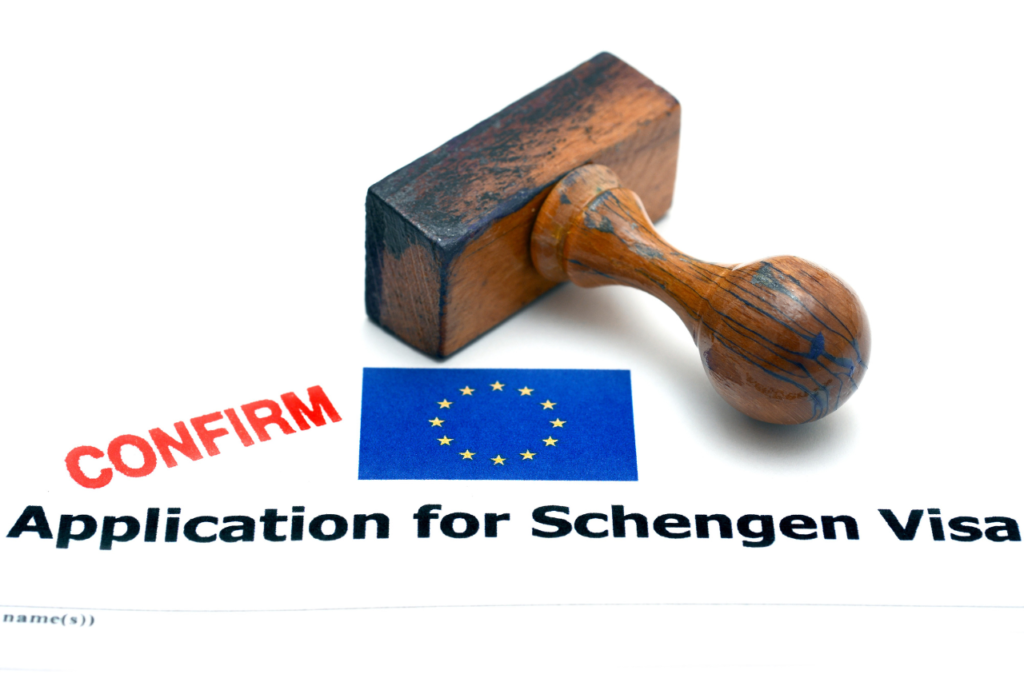Embarking on a journey to the captivating Schengen countries is a dream for many, with aspirations to explore Europe’s rich history, culture, and landscapes. However, securing a Schengen visa can be complex, and not all applications are approved. Rejection can be disheartening, often leaving applicants confused about the reasons behind it. This guide explains the 12 most common reasons that lead to Schengen visa applications being rejected, helping both seasoned travellers and first-time applicants improve their chances of success.
Past or Current Criminal Actions:
Criminal history involving serious offenses can result in visa denial due to concerns about public safety and security within the Schengen Area.
False Travel Document:
Using fraudulent documents or misrepresenting your identity during the visa process leads to immediate rejection and potential long-term consequences.
Insufficient Explanation for the Planned Stay:
Vague or incomplete explanations of your travel purpose can cause your application to be denied. It’s crucial to provide detailed and consistent information about your itinerary and the purpose of your visit.
Damaged Passport:
A passport in poor condition or with missing pages may be deemed unacceptable, as it negatively reflects on the applicant’s credibility and seriousness.
Passport Invalidity:
Passports must have at least three months’ validity beyond the planned departure date from the Schengen area and contain at least two blank visa pages.
Lack of Proof of Travel Itinerary:
A well-documented itinerary including confirmed hotel bookings and a return ticket is essential to establish the legitimacy of your visit.
Invalid Letter of Reference:
Reference letters that lack necessary details, proper authentication, or relevance to the application can undermine your visa request.
Insufficient Means of Subsistence:
Demonstrating financial capacity is pivotal. Applicants must show they have adequate funds to support themselves during their stay, through bank statements or other financial documents.
Unacceptable Birth or Marriage Certificate:
Essential for verifying personal relationships and legal status, these documents must be official, translated appropriately, and consistent with other application details.
Invalid Travel Insurance:
Insurance must cover all potential expenses related to medical reasons, urgent medical attention, and/or emergency hospital treatment or death during your stay(s) in the Schengen States. Insurance not meeting these criteria will be rejected.
Lack of Proof of Accommodation:
Proof of where you will stay during your visit, whether through hotel reservations or an invitation from a host, is mandatory.
Unfavorable Schengen Visa History:
A history of overstaying visas, violating visa conditions, or previous deportation from the Schengen area can affect the decision on your current application.
Can I use my existing health insurance for a Schengen visa
You can use existing health insurance for a Schengen visa application, but you must meet specific conditions. Here are the key points to consider:
Coverage Requirements: Your existing health insurance must meet the Schengen visa requirements, which include:
- A minimum coverage of €30,000 for medical expenses.
- Coverage for emergency medical treatment, hospitalization, and repatriation costs in case of illness or death.
Validity Across Schengen Area: The insurance must be valid in all Schengen countries for the entire duration of your stay. This means it should explicitly state that it covers all Schengen member states.
Proof of Insurance: You will need to provide proof that your existing health insurance meets these criteria when submitting your visa application. This proof should be in the form of an insurance certificate or policy document that clearly outlines the coverage details.
Insurance Provider Requirements: The insurance provider should ideally have an office in the Schengen area or a cooperation agreement with a local insurer. If your existing policy does not meet this requirement, it may not be accepted.
Exemptions: Certain individuals may be exempt from needing additional travel insurance, such as diplomats or family members of EU citizens, but this does not generally apply to most visa applicants.
To apply for a Schengen visa, travelers must obtain travel health insurance that meets specific requirements. Here are the key criteria for Schengen travel insurance:
Specific Requirements for Schengen Travel Insurance
Minimum Coverage Amount:
The insurance must provide a minimum coverage of €30,000. This amount is essential to cover medical expenses, including hospital treatment and emergency care during the stay in the Schengen area.
Validity Across Schengen Countries:
The policy must be valid in all Schengen member countries for the entire duration of the applicant’s stay. This ensures that coverage is applicable regardless of which countries are visited within the Schengen zone.
Coverage Details: The insurance should cover:
- Emergency medical treatment and hospitalization.
- Repatriation costs in case of medical emergencies or death.
- Prescription medications and urgent medical assistance.
Proof of Insurance:
Applicants must provide proof of their travel insurance when submitting their visa application. This typically includes a certificate or policy document that clearly states the coverage details, validity, and that it meets all required criteria.
Claims Recovery:
It is important that claims against the insurance can be recoverable in a Schengen member state, which may require the insurer to have a local presence or cooperation agreements in place.
On-the-Spot Assistance:
The insurance should offer on-the-spot assistance for medical expenses and repatriation, rather than just reimbursement after returning home.
Exemptions:
Certain individuals, such as those holding diplomatic passports or family members of EU citizens, may be exempt from needing travel insurance, but this does not apply to most visa applicants.
Understanding these common reasons for visa denial can significantly improve your chances of a successful Schengen visa application. By meticulously preparing your application and addressing potential issues proactively, you can increase the likelihood of approval and make your European travel aspirations a reality.
How Law and Visas Can Help?
At Law and Visas, our team of expert immigration consultants is here to make your Schengen application straightforward and successful. Whether you’re applying for a Transit Visa or a Short Stay Visa, we handle every step—from preparing your application to gathering the required documents.
Our Immigration Consultants and Lawyers ensure that your application meets the highest standards, with no details missed. We’ll also keep you informed throughout the process and coordinate with the immigration office or embassy on your behalf.
Law and Visas have a strong record of helping clients secure the visas/permits they need to visit Germany. You can call us today at +234 812 5505 986 to learn how we can help you.





